‘Wales is one of the jewels of Europe’
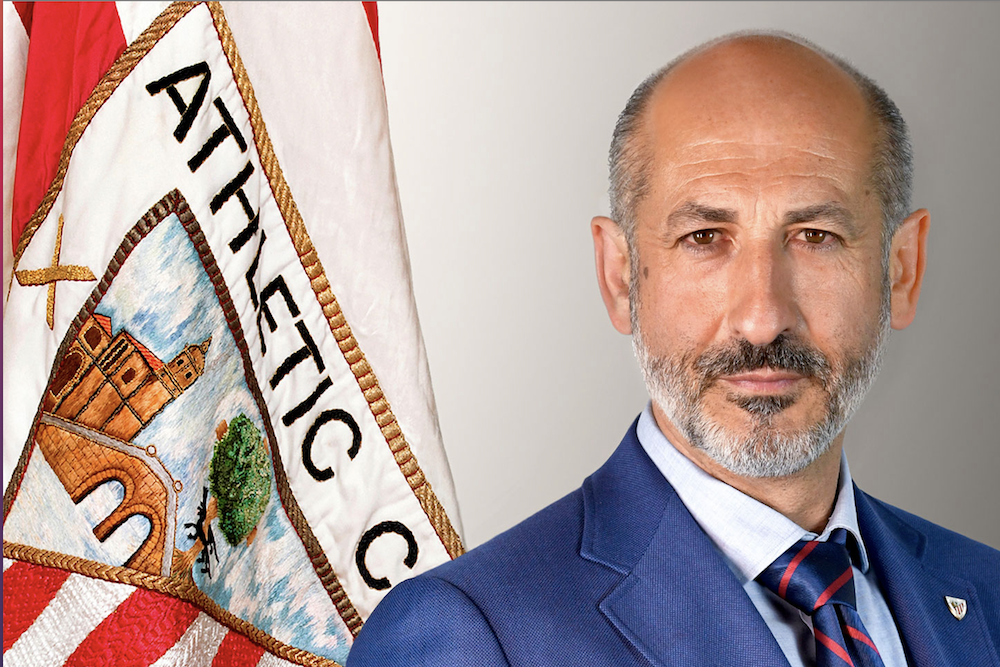
Christopher Evans
Arriving at Palacio de Ibaigane, the headquarters of Basque football giants Athletic Club de Bilbao, it is hard not to be overawed at the sheer beauty and opulence of the building.
Designed by the Basque architect Gregorio Ibarretxe in 1920, the palace was inspired by the classicist palaces of the early Baroque period, as well as the more humble Baserri’s – the famous Basque farmhouses seen scattered around this beautiful part of the world.
It was built for Ramón de la Sota, a Basque lawyer, shipping magnate and industrialist, who received a knighthood from the British government for his assistance providing ships for the Allied forces during the First World War.
Following Franco’s victory in the Spanish Civil War in 1939, the building was seized and converted into military barracks, finally being returned to its rightful owners in 1979, four years after the fascist leaders’ death.
Athletic Club bought the building in 1986 and restored it to its former glory. It has been used as the club’s offices ever since.
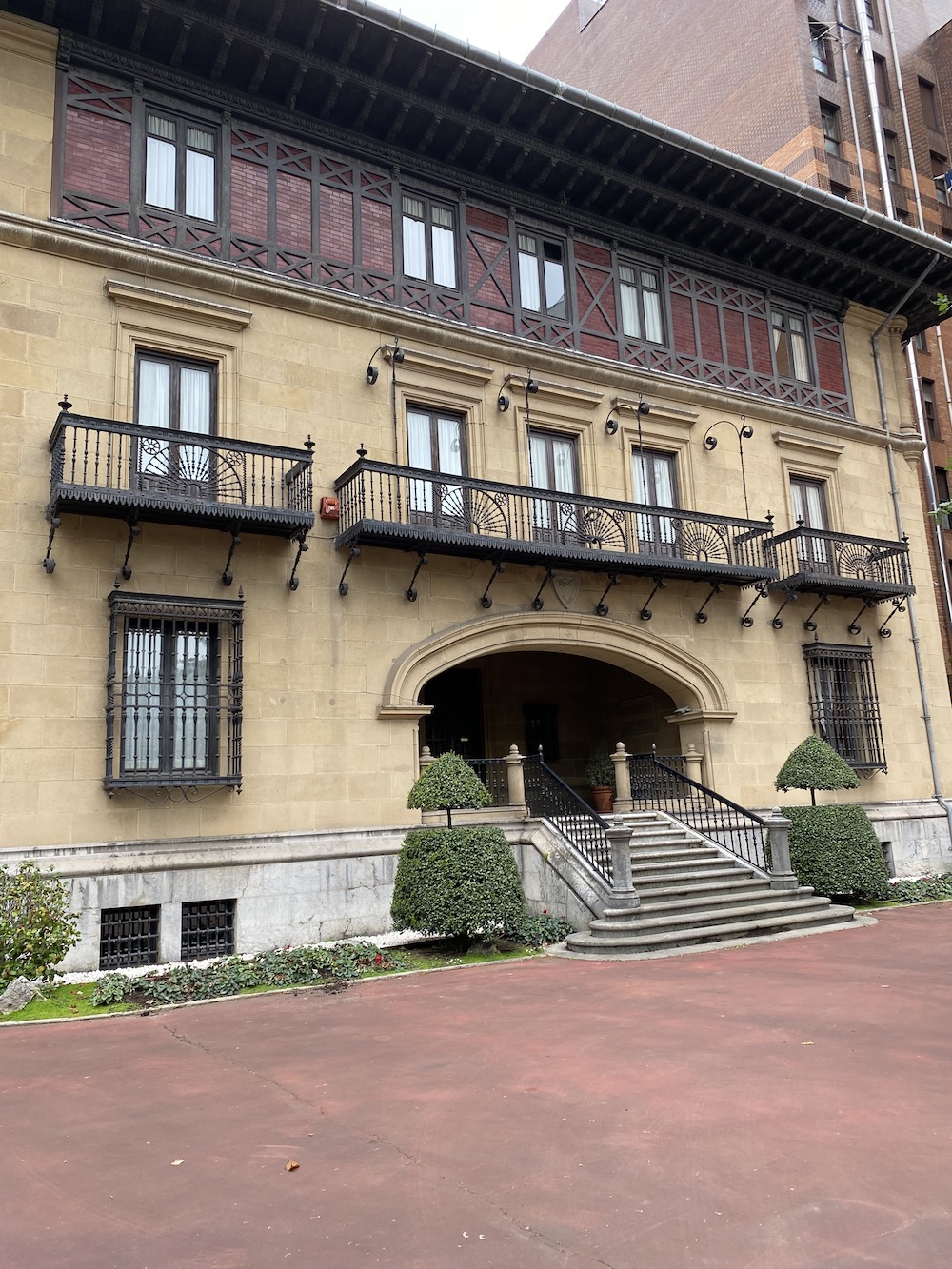
Athletic Club de Bilbao’s president Aitor Elizegi emanates an aura.
He is charismatic, confident and erudite. He is everything you would expect from a successful chef, restaurant owner, entrepreneur and football club president.
Imagine a Basque Gordon Ramsay, but friendlier and less sweary.
As he sits at his office desk at Ibaigane, he is still buzzing following the inauguration of a new exhibition entitled ‘The children of ’37 in the United Kingdom’ that took place at the club’s stunning San Mamés stadium earlier in the day.
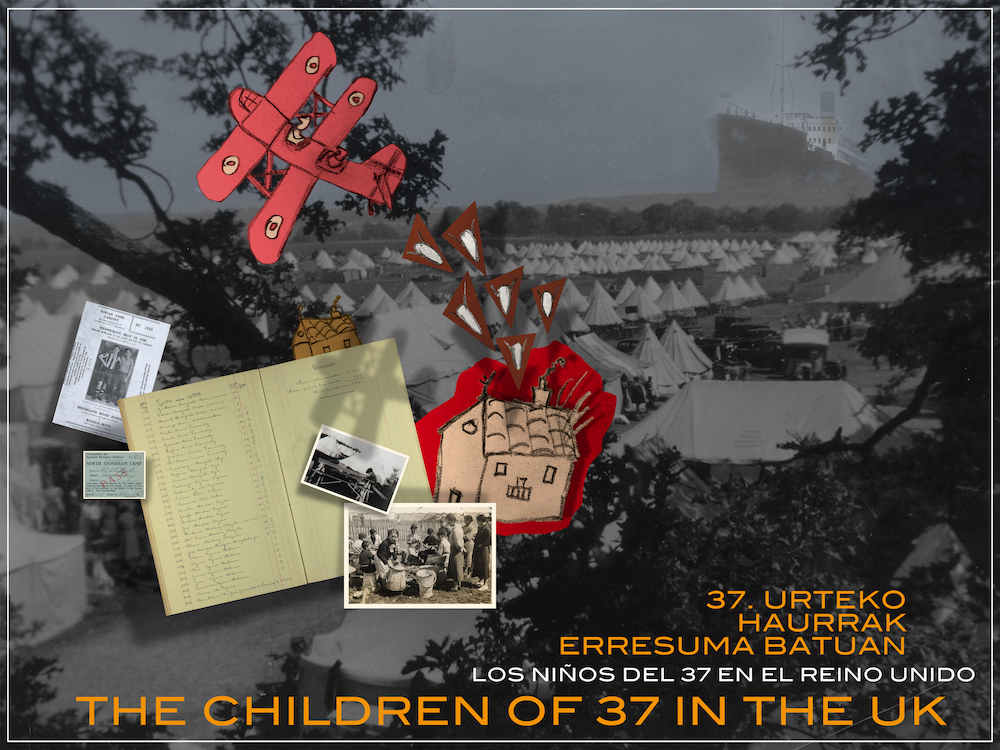
The exhibition focuses on the children refugees who fled to the UK during the Spanish Civil War following the destruction of the towns of Durango and Gernika. Football played a huge part in the children’s lives, giving them an outlet to express themselves and to help them momentarily forget about their experiences and the horrors of war in their homeland.
Some of the children went on to play professional football, notably Sabino Barinaga, who scored the first ever goal at Real Madrid’s Santiago Bernabeu stadium, Raimundo Lezama, who won eight trophies with Athletic Club, Emilio Aldekoa, and Enrique Garatea, who was looked after in Caerleon.
Using archive photographs and documents mainly from the Basque Children’s Association ’37 UK, the exhibition will now be open to the public for the next six months.
Wales played a huge part in housing Basque refugees, with the successful football team Basque Boys AFC being created in Caerleon. The boys created quite a storm throughout Wales, with their goalkeeper Enrique Garatea going on to play professionally in Spain.
Images from the Nation.Cymru article about the Basque Boys are on display at the exhibition.
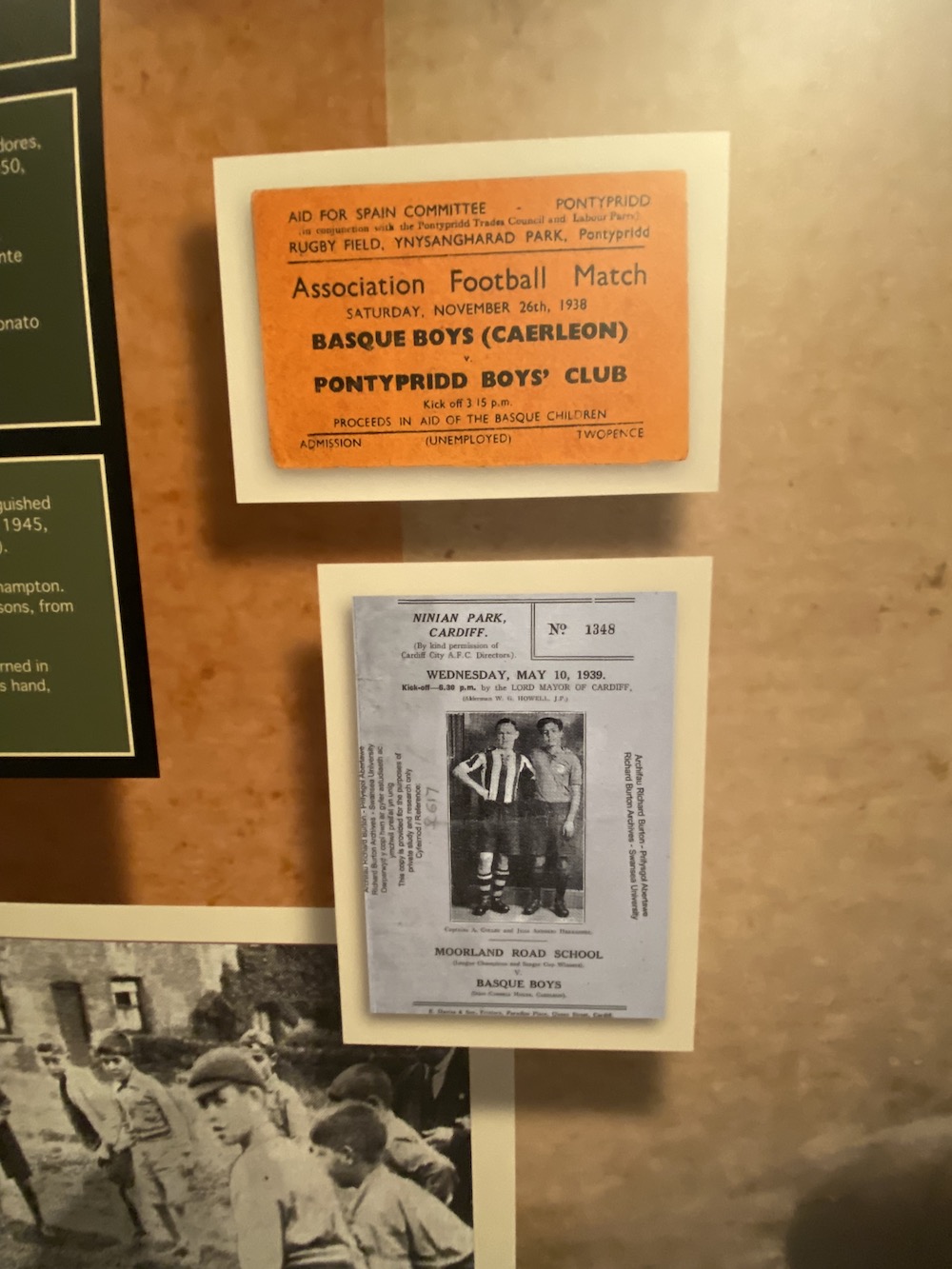
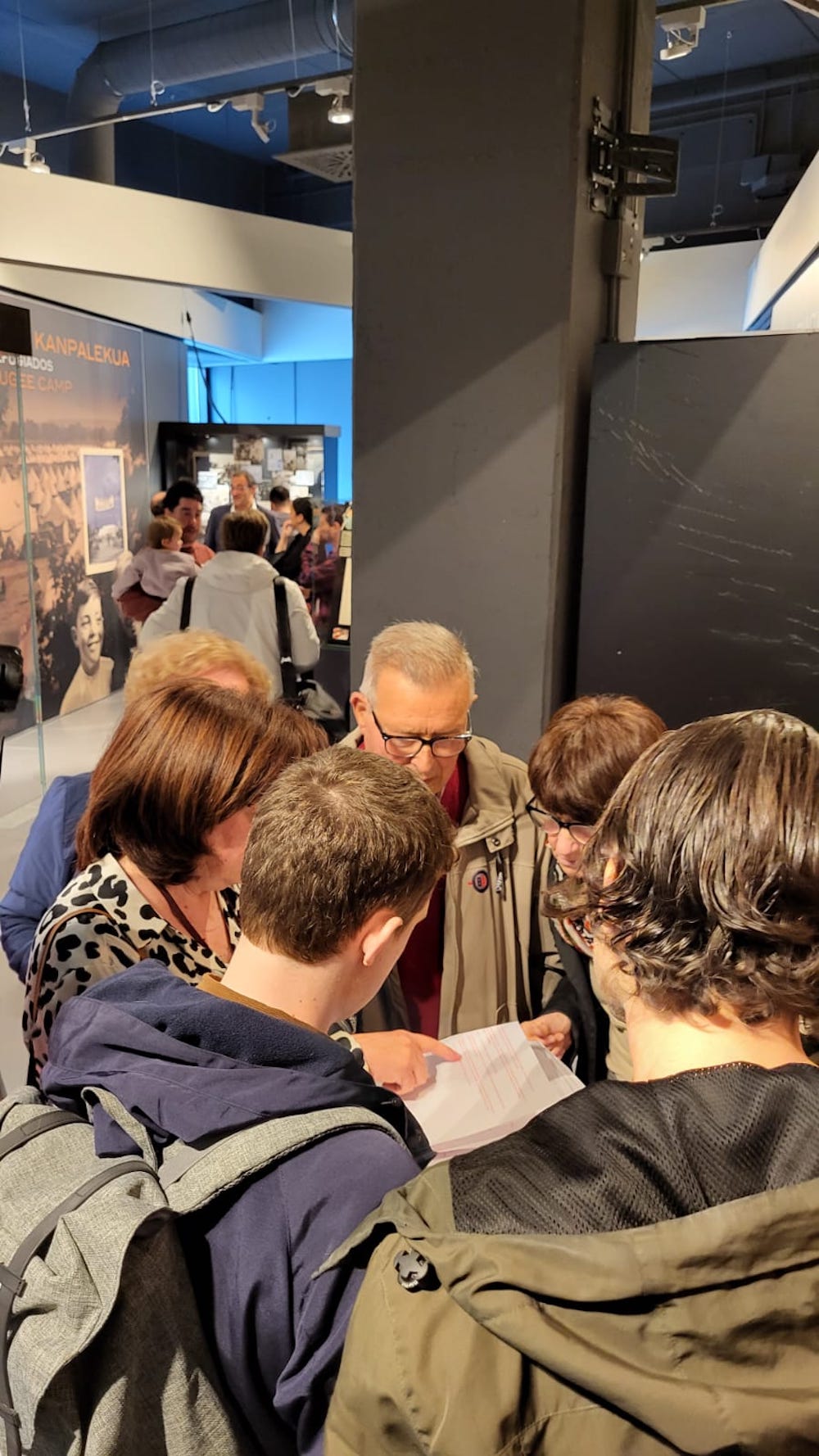
“Even though the Civil War happened 85 years ago, it is still something that means a lot to people in the Basque Country,” says Elizegi. “It is still fresh in our memories. We are a people who are in some way still in a period of transition. But it’s a reality, it happened.”
Elizegi gathers his thoughts. “We are people who identify with refugees and exiles. We have a different sort of politics.”
When it is suggested this is similar to Wales, he sits back in his chair. “Obviamente.” (Obviously!)
A 10-foot red and white flag adorning the Athletic Club crest stands proud next to a large fireplace in the corner. The badge expresses their Basque nationalism, depicting the Gernikako Arbola (Tree of Guernica), the oak tree that symbolises the traditions and freedoms of the Basque people, as well as the Church of St. Antón, and San Antón Bridge, famous Bilbao landmarks.
Elizegi, reportedly a member of the Basque Nationalist Party (PNV), is cagey when answering questions about nationalism. It is not an inward-looking or xenophobic nationalism; it is about recognising the importance of smaller cultures on a global scale.
You can also visit #ACMuseoa‘s “Children of ’37 in the UK” exhibition to learn more about the evacuation and the role football played in helping the refugees.
Part of the AC Museum & San Mames Tour 👉 https://t.co/hN26kLXc4i@basquechildren #AthleticClub 🦁 pic.twitter.com/W9JLqrWVtX
— Athletic Club (@Athletic_en) May 20, 2022
“Without going into it too much as it can be misconstrued, but the history or stories to do with small nations like Wales, Sahara, or Québec; it is something that is interesting to the Basque people. For a Basque, and especially for an Athletic Club fan, it is really easy to understand smaller cultures that are independent.”
Choosing his words carefully, Elizegi contemplates the difficulties of being both a nationalist and internationalist.
“Basques understand the values of entities like the European Union and collaborating with each other. But they don’t always see the extreme value in forcing cultures together. It is a type of nationalism but with internationalism. What is your win by having less variety of cultures, gastronomy, languages and people, for example?”
The affable Elizegi smiles. “Of course, Wales is one of the jewels of Europe!”
Wales also has something Elizegi longs for; a national football team. The Basque Country, or Euskadi or Euskal Selekzioa, have played international friendlies since 1915. In 2020, the Basque Football Federation applied to be recognised by FIFA and UEFA to allow them to compete in international competitions.
However, they are still not “officially” recognised as a footballing nation, much to the frustration of the Los Leones president.
“This is an easy question, but a long answer! I think that FIFA and UEFA made a significant mistake when they joined together lots of different federations and identities. From the point of view of people from Athletic and in the Basque Country, football is much richer when there are more identities and more smaller nations – football is better for that.”
Magical
The 55-year-old continues: “Sometimes it seems like FIFA are putting economics first, as in reality they would like to see a United States versus Europe, or Africa versus Asia. But at Athletic we are more interested in the little man. We believe that it is something that enriches football as a sport and makes it better.”
The man from the Santutxu area of Bilbao insists he understands the economics of having the South American or African champions playing against the European champions, but feels the smaller nations are sometimes forgotten.
“Football is a world sport because anyone who identifies with any identity can play. That is why it is magical and that is why it is different. Football is not just about being the best and winning all of the time. It’s not the NBA or the NFL. Football is about everyone taking part.”
The aforementioned “little man” is at play again, although coinciding with collaboration with the global community.
“Whether it’s a school, neighbourhood, or a small country, eleven fans can play football. That is what makes football special. Football is made for fans and then for footballers – who first of all are fans, who just want to play football.
He says that questions about football identity “can be very complex,” but it is clear he feels the Basque Country should be allowed the same privileges as Wales in regard to a football team. (Under John Toshack, Wales played a friendly against the Basque Country in 2006 at the San Mamés in Bilbao).
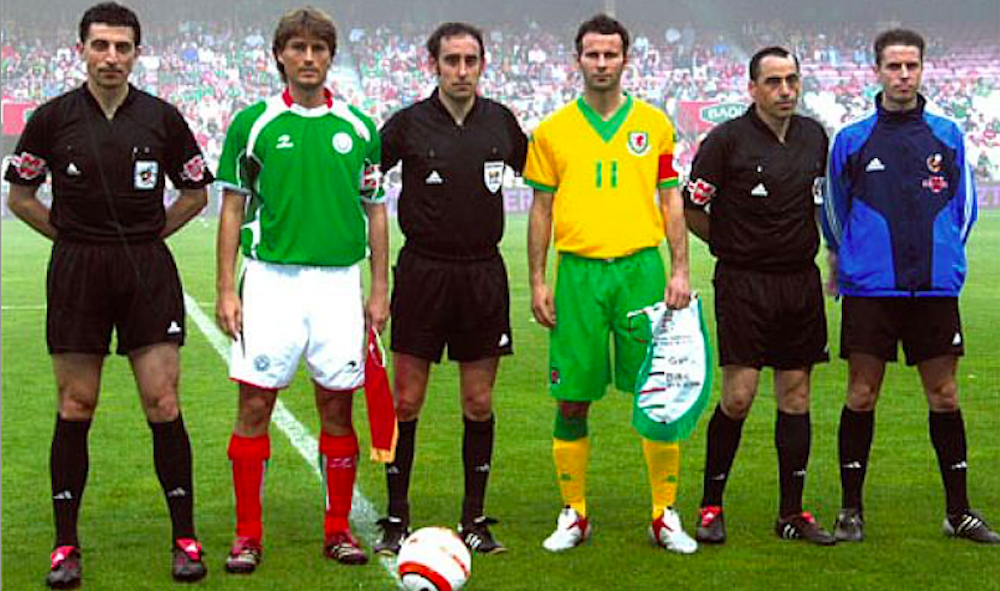
Elizegi will not be president of Athletic Club much longer, deciding not to stand at the forthcoming elections this summer. However, one thing he will always stand for is the unique La Cantera (“the quarry”) philosophy of the club.
In an age of international scouting networks and astronomical transfer fees, Athletic only field players of Basque heritage or development, a philosophy that is renowned around the footballing world.
“In the 20th Century it was something natural, but since the 21st century, obviously the laws of the transfer market changed all of the balances of professional football. Before the Bosman ruling, what was happening at Athletic was something that was normal throughout football. But after Bosman, Athletic became something really different and something more unique in terms of world football.”
Elizegi beams with pride when talking about this unique approach to modern football.
“What makes Athletic really special is the fact that the players are formed in our own youth academy, which doesn’t really happen in other places.”
He points out that in the main leagues in Europe, if a club has an issue or makes a mistake, they can correct these in the transfer market. Not Athletic.
“Nowadays, it is very difficult to maintain a club that is focused on producing its own players and especially still being professional. The biggest difference for Athletic Club is that with our mistakes, or what we need for the team, we try to correct them, or we go to the academy to fix them.”
The philosophy works well, with Athletic making huge money selling the players that do want to leave, such as Kepa Arrizabalaga and Aymeric Laporte. They have ready-made replacements in the academy.
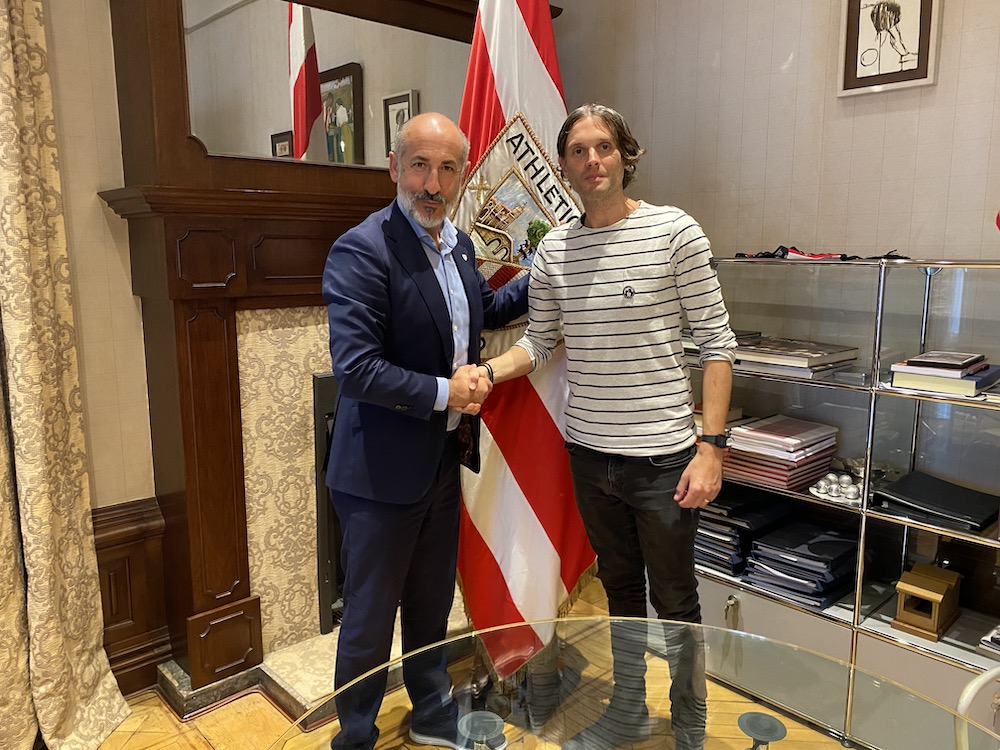
Loyalty is key, and this is no more evident than with their star forward Iñaki Williams, who despite continued interest has said he has no intention of ever leaving.
Williams is the son of Ghanaian refugees who crossed the Sahara barefoot, his mother climbing a fence into the Spanish north African territory of Melilla whilst pregnant with him.
Born in Bilbao, Williams has now played in a record 224 games in a row for the club.
With the parallels with the current crisis in Ukraine, the exhibition and Williams’ story resonate deeply. Athletic are a very special club with a unique outlook and philosophy.
As Elizegi comes to the end of his tenure, he leaves a club with a strong and unparalleled identity and spirit, as well as a sense of community that can perhaps only be equalled by our very own Red Wall.
Support our Nation today
For the price of a cup of coffee a month you can help us create an independent, not-for-profit, national news service for the people of Wales, by the people of Wales.






That was a really interesting article and I agree with the Basques that they should have their own national team like we do. There are so many potential national teams around the world that UEFA and FIFA are denying and I reckon if Wales didn’t have a national team at such an early stage in the growth of the sport then England would have forced us all to play under their banner while having to sing their queens cartoon theme tune..
Lovely article 🙂 Nation.Cymru should publish more articles like this based on people or institutions from All the Celtic Nations, and small countries around the world. If successful they could start another site which provides more in depth information about such people, institutions and places, obviously 😉
The Basque people like we Cymry face daily prejudice by ones who attack our right to be who we are. Not only should my Basque brothers & sisters have the right to represent their country in the sporting arena but also have their vote for independence respected by Spain.